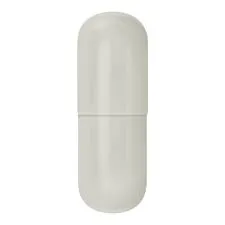
Nov . 27, 2024 22:10 Back to list
Hydroxyethyl Cellulose Powder Applications and Benefits in Various Industries and Formulations
Understanding Hydroxyethyl Cellulose Powder Properties, Applications, and Benefits
Hydroxyethyl cellulose (HEC) powder is a non-ionic, water-soluble polymer derived from cellulose, a natural polymer found in the cell walls of plants. Due to its unique properties, HEC has gained significant attention across various industries, including pharmaceuticals, cosmetics, and food.
Properties of Hydroxyethyl Cellulose
HEC is known for its excellent film-forming, thickening, and stabilizing properties. One of its defining characteristics is its ability to dissolve in cold water, leading to the formation of a clear, viscous solution. This property makes it particularly valuable in applications where heat-sensitive ingredients are involved. HEC is also resistant to microbial degradation, making it advantageous for products with a longer shelf life.
HEC is available in various grades, characterized by different molecular weights and degrees of substitution. The molecular weight of HEC can influence its viscosity and solubility, thus determining its specific application. The degree of substitution refers to the number of hydroxyethyl groups attached to the cellulose backbone, which affects its hydrophilicity and rheological properties.
Applications of Hydroxyethyl Cellulose
1. Pharmaceuticals In the pharmaceutical industry, HEC is used as a thickening agent in liquid formulations, ensuring the uniform distribution of active ingredients. Its properties also make it suitable for use in controlled-release formulations, where it can help to regulate the release of medication over time.
hydroxyethyl cellulose powder

2. Cosmetics and Personal Care HEC is widely used in cosmetics and personal care products due to its ability to enhance texture and improve the application of creams and lotions. It acts as a stabilizer in emulsions, preventing the separation of oil and water phases. Additionally, HEC is often incorporated into hair care products, helping to provide a smooth feel and manageability.
3. Food Industry In food applications, hydroxyethyl cellulose serves as a thickening agent, improving the texture and mouthfeel of products such as dressings, sauces, and dairy items. It can enhance the stability of emulsions and prevent syneresis, the separation of liquid from gel-like substances.
4. Construction Due to its water-retention properties, HEC is commonly added to cement and tile adhesives. It helps improve workability and provides a longer open time for application, allowing for better adhesion and leveling.
5. Industrial Applications HEC is also utilized in various industrial processes, such as paint and coating formulations, where it acts as a thickener and stabilizing agent. Its ability to enhance the flow and application of paints has made it a preferred choice among manufacturers.
Benefits of Hydroxyethyl Cellulose
Using HEC in formulations offers numerous benefits. Firstly, it is non-toxic and stable, making it safe for use in a variety of consumer products. Secondly, HEC promotes improved texture and enhances the overall user experience in cosmetics and personal care products. In pharmaceuticals, it allows for precise control over the viscosity and release profiles of medications. Lastly, its versatility means that it can be adapted for numerous applications across various industries.
In conclusion, hydroxyethyl cellulose powder is a valuable ingredient with remarkable properties that cater to a wide range of uses. Its adaptability allows it to meet the demands of several sectors, making it an essential additive in modern formulations. As researchers continue to explore its potential, it is likely that HEC will play an increasingly important role in innovative product development. Whether in pharmaceuticals, cosmetics, food, or construction, HEC stands out as a key player in enhancing the functionality and performance of various formulations.
-
Versatile Hpmc Uses in Different Industries
NewsJun.19,2025
-
Redispersible Powder's Role in Enhancing Durability of Construction Products
NewsJun.19,2025
-
Hydroxyethyl Cellulose Applications Driving Green Industrial Processes
NewsJun.19,2025
-
Exploring Different Redispersible Polymer Powder
NewsJun.19,2025
-
Choosing the Right Mortar Bonding Agent
NewsJun.19,2025
-
Applications and Significance of China Hpmc in Modern Industries
NewsJun.19,2025







